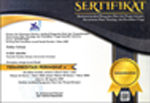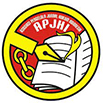Strengthening The Authority Of The Indonesian Ombudsman In The Public Service Sector
Abstract
In the era of disruption, because of advances in communication and information technology, causing disruptions in the administration of government, which was originally based on the monopoly and power paradigm, became a public service paradigm based on the principle of good governance through e-government services.
In carrying out the task of supervising public services, until now the authority of the Indonesian Ombudsman is still very limited, which can be seen from legal products in the form of recommendations that do not have legal coercion for state/government administrators who commit maladministration. On that basis, the Indonesian Ombudsman issues a regulation on the Indonesian Ombudsman which authorizes its decisions, which are final and binding, in public service disputes through an adjudication process. In fact, the position of the Indonesian Ombudsman should indeed be as an institution that only gives influence (magistratur of influence) to state/government officials in order to respect the rights of citizens in public services.
To strengthen the authority of the Indonesian Ombudsman, it is carried out (a) strengthening the constitutional position of the Indonesian Ombusman, (b) clarifying the scope of supervision by the Ombudsman, both regarding what things can be monitored and to whom the supervision can be carried out, (c) formulating threats sanctions for public service officials who do not implement the Ombudsman's recommendations in reports of violations of public services, (d) formulate the Ombudsman's authority that is active-preventive, and (e) formulate coercive power against the Ombudsman's recommendations as an effort to improve the quality of public services.
Keywords
Full Text:
PDFReferences
Bibliography
Arrigi, Giovanni and Silver, Beverly J. 1999. Chaos and Governance In The Modern World System. University of Minnesota Press.
Asshiddiqie, Jimly. 2011. Constitutional Law and the Pillars of Democracy. Jakarta, Sinar Grafika.
Blainpain, R and Colucci, M. 2002. The Impact of The Internet and New Technologies on The Workplace. Kluwer Law International.
Budhijanto, Danrivanto. 2010. Law of Telecommunications, Broadcasting, and Information Technology (Regulation and Convergence). Bandung, PT. Refika Aditama.
Hadjon, Philipus M, et.al. 2010. Administrative Law and Good Governance. Jakarta, Trisakti University Publishers.
Kasali, Rhenald. 2017. Disruption. Jakarta, PT. Main Gramedia Compass.
Kooiman, Jan (ed). 1993. Modern Governance : New Government Society Interactions. London, Sage Publication.
Ombudsman of the Republic of Indonesia. 2020. Strategic Plan 2020-2024. Jakarta, www.ombudsman.go.id.
Sedarmayanti. 2012. Good Governance. Second Edition, Bandung, CV.Mandar Maju.
Sirajuddin, et.al. 2012. Public Service Law (Based on Participation and Public Information Disclosure). Malang, Setara Press Publishers.
Sudrajat, Achmad Sodik and Ridwan, H. Juniarso. 2010. Administrative Law and Public Policy Service. Bandung, NUANSA Publishers.
Sujata, Anton, et.al. 2002. Indonesian Ombudsman (Past, Present, and Future). Jakarta, Publisher of the Indonesian Ombudsman Commission.
Triwulan T, Titik and Ismu Gunadi Widodo. 2014. Administrative Law and Procedural Law of the Indonesian Administrative Court. Jakarta, KENCANA Publishers.
DOI: http://dx.doi.org/10.28946/sc.v29i2.2149
Refbacks
- There are currently no refbacks.

This work is licensed under a Creative Commons Attribution-NonCommercial 4.0 International License.
--------------------------------------------------------------------------------------------------------------------------------------------------------------
SIMBUR CAHAYA : Jurnal Ilmiah Ilmu Hukum
ISSN: 1410-0614 (Print)
e-ISSN: 2684-9941 (Online)
Published by :
Fakultas Hukum Universitas Sriwijaya
Jl. Srijaya Negara, Bukit Besar, Ilir Barat I, Palembang, 30139
Telepon : +62711-580063 Fax : +62711-581179
Email : simburcahaya@fh.unsri.ac.id
Website : http://journal.fh.unsri.ac.id/index.php/simburcahaya

Jurnal Simbur Cahaya (SC) is licensed under a Creative Commons Attribution-ShareAlike 4.0 International License.

1.png)













